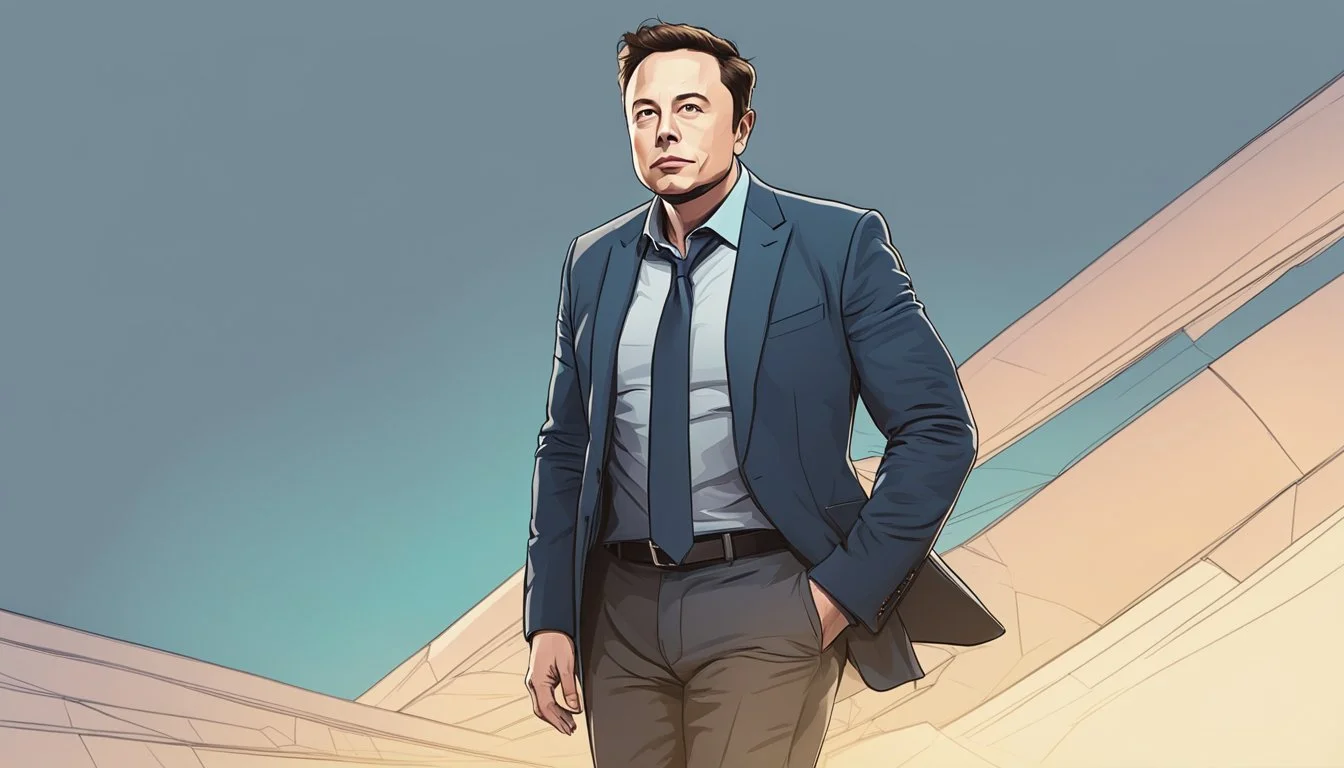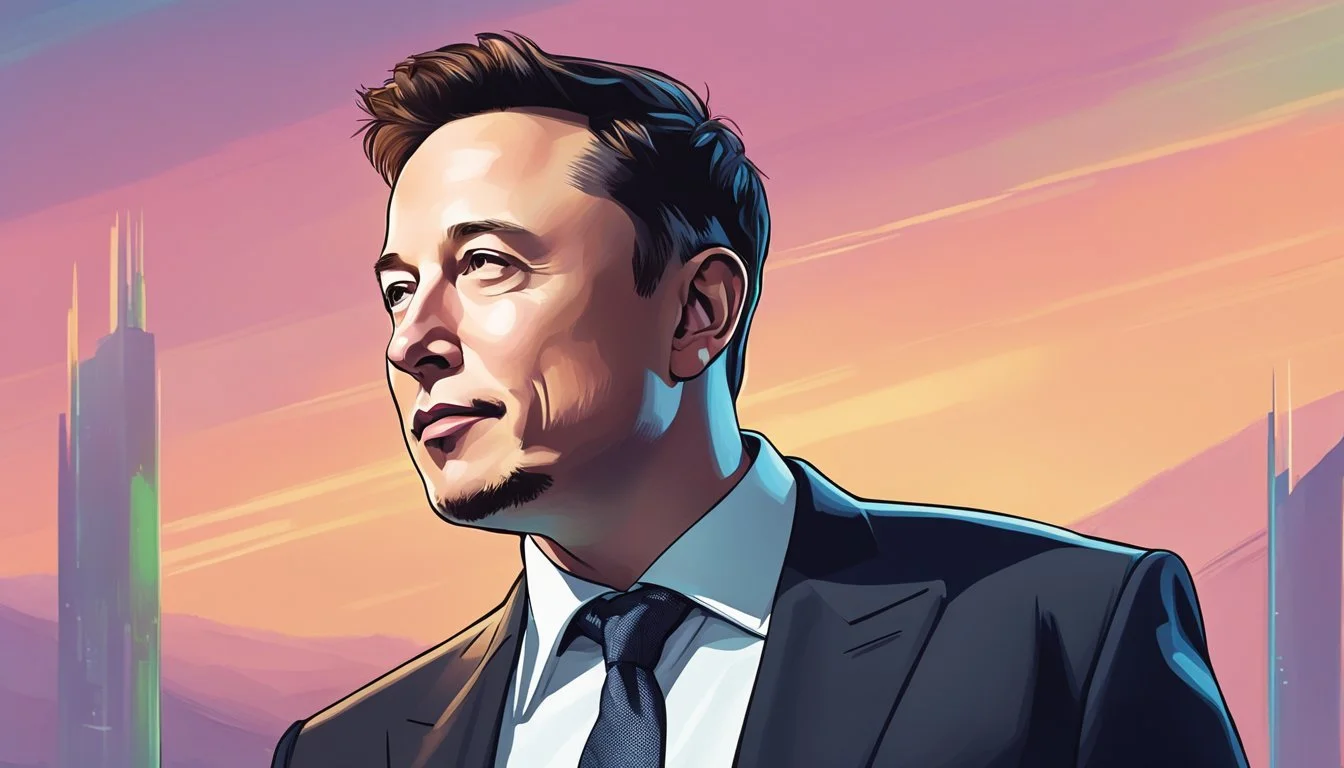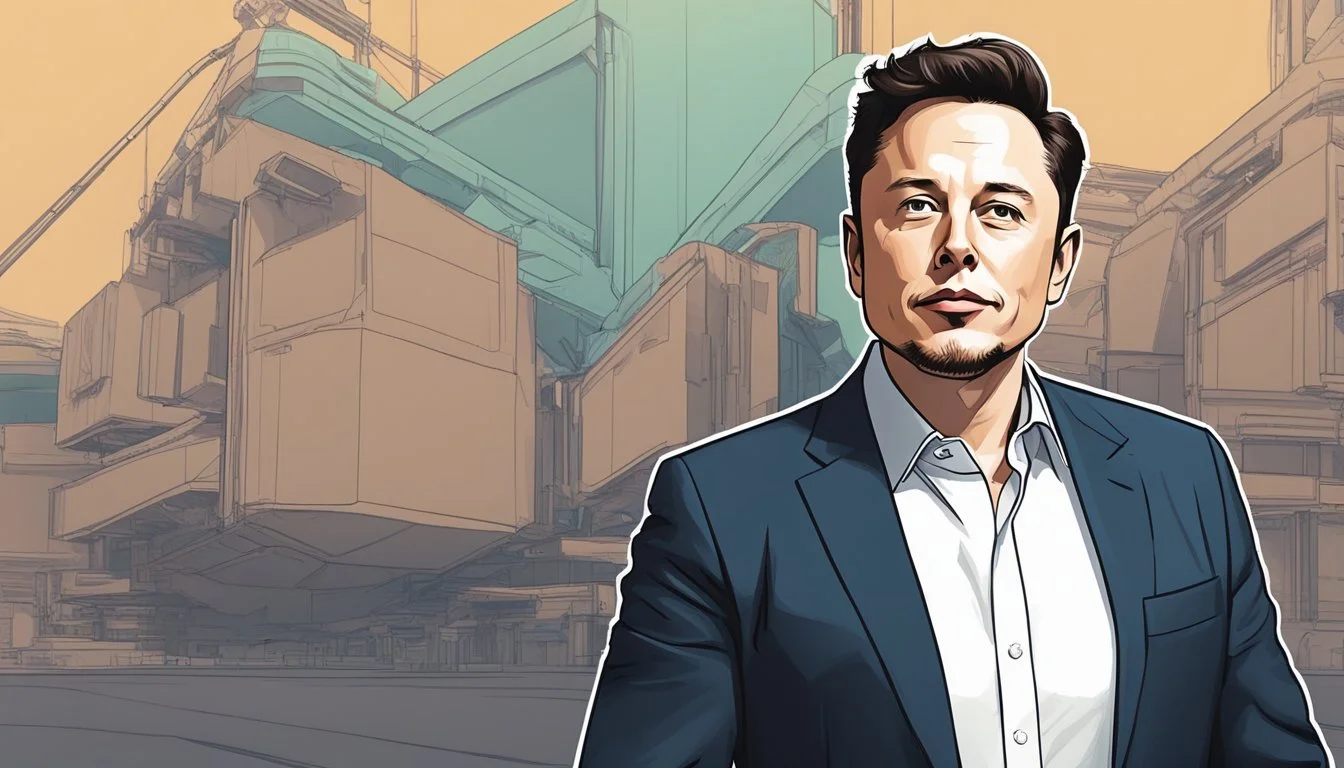The Origins and Early Life of Elon Musk
The Origins of a Tech Visionary
Elon Musk, one of the most influential entrepreneurs of the 21st century, hails from South Africa. Born on June 28, 1971, in Pretoria, Musk spent his early years in his native country before embarking on a journey that would lead him to become a global tech icon.
Musk's origins trace back to South Africa, where he was born and raised before moving to Canada and eventually settling in the United States. This international background has played a significant role in shaping his worldview and entrepreneurial spirit.
As a child, Musk displayed a keen interest in technology and innovation. His upbringing in South Africa laid the foundation for his future endeavors, instilling in him a drive to push boundaries and challenge conventional thinking. This early passion would eventually lead him to create groundbreaking companies like SpaceX, Tesla, and PayPal, revolutionizing industries and cementing his place as a visionary leader in the tech world.
Early Life and Education
Elon Musk's journey from South Africa to becoming a tech innovator in Silicon Valley was shaped by his early experiences and education. His path included emigration, multiple university studies, and initial entrepreneurial ventures.
Birth and Early Years in South Africa
Elon Musk was born on June 28, 1971, in Pretoria, South Africa. He grew up in a wealthy area during the apartheid era. His parents were Maye Musk, a model and dietitian, and Errol Musk, an electromechanical engineer.
As a child, Musk displayed an early aptitude for technology and entrepreneurship. He taught himself computer programming at age 12 and sold a video game he created for $500.
Musk faced challenges in his youth, including bullying at school and his parents' divorce. These experiences contributed to his resilience and drive for success.
Emigration to Canada and Early Ventures
At 17, Musk left South Africa to avoid mandatory military service. He moved to Canada in 1989, leveraging his mother's Canadian citizenship to gain entry.
In Canada, Musk worked various odd jobs, including cleaning boilers and cutting logs. He lived with relatives before enrolling in college.
During this time, Musk began to formulate ideas for future business ventures. His experiences in Canada helped shape his entrepreneurial mindset.
Education at Queen's University and the University of Pennsylvania
Musk initially attended Queen's University in Kingston, Ontario. After two years, he transferred to the University of Pennsylvania in 1992.
At Penn, Musk pursued a dual bachelor's degree in economics and physics. He demonstrated his academic prowess and interdisciplinary interests.
Musk's studies in physics and economics laid the groundwork for his future innovations in technology and business. He graduated from Penn in 1997.
Transfer to Stanford University and the Silicon Valley Influence
After graduating from Penn, Musk was accepted into a Ph.D. program in energy physics at Stanford University. However, he left after just two days to pursue entrepreneurial opportunities in Silicon Valley.
This decision marked a pivotal moment in Musk's career. In Silicon Valley, he co-founded Zip2 Corporation, a web software company, with his brother Kimbal.
The vibrant tech ecosystem of Silicon Valley provided Musk with the resources and connections to launch his first major business venture. This environment would prove crucial in shaping his future endeavors.
Business Ventures and Entrepreneurship
Elon Musk's career spans multiple groundbreaking companies across diverse industries. His ventures have revolutionized online payments, space travel, electric vehicles, renewable energy, and transportation infrastructure.
Founding Zip2 and PayPal
In 1995, Musk co-founded Zip2, an online city guide providing local business information and maps. The company was acquired by Compaq in 1999 for over $300 million. Musk then created X.com, an online financial services platform. X.com merged with Confinity in 2000, forming PayPal. The company pioneered secure online money transfers. eBay purchased PayPal in 2002 for $1.5 billion, netting Musk $165 million.
SpaceX and the Dream of Mars
Musk founded Space Exploration Technologies (SpaceX) in 2002 with the goal of reducing space transportation costs and enabling Mars colonization. SpaceX developed reusable rockets, significantly lowering launch costs. The company has secured numerous NASA contracts and achieved milestones like sending astronauts to the International Space Station. Musk's ambitious plans include establishing a human settlement on Mars.
Electric Vehicles and Tesla
In 2004, Musk invested in Tesla Motors and became chairman of the board. He later assumed the CEO role in 2008. Tesla revolutionized the automotive industry by producing high-performance electric cars. The company expanded its product line to include more affordable models, solar roof tiles, and energy storage solutions. Tesla's success has accelerated the global transition to sustainable transportation.
Solar Energy and SolarCity
Musk co-founded SolarCity in 2006 with his cousins. The company became a leading provider of solar power systems in the United States. SolarCity aimed to accelerate the adoption of clean energy by making solar panels more accessible and affordable. Tesla acquired SolarCity in 2016, integrating solar technology with its energy storage products.
Hyperloop and The Boring Company
In 2013, Musk proposed the Hyperloop, a high-speed transportation system using sealed tubes. While not directly developing it, he encouraged others to pursue the concept. In 2016, Musk founded The Boring Company to build underground tunnel networks for high-speed transportation. The company aims to alleviate traffic congestion in major cities and enable rapid transit between urban centers.
Technological Innovations and Forward-Looking Projects
Elon Musk's ventures span diverse technological frontiers, from revolutionizing space travel to advancing artificial intelligence and global internet access. His companies have pioneered reusable rockets, brain-computer interfaces, and satellite internet constellations.
Advancements in Rocket Technology
SpaceX has transformed space exploration with its innovative rocket designs. The Falcon 9, a two-stage rocket capable of landing and reuse, has significantly reduced launch costs. This breakthrough has made space more accessible for commercial and scientific missions.
The Falcon Heavy, SpaceX's most powerful operational rocket, can lift over 63 metric tons to low Earth orbit. It features three Falcon 9 first-stage cores for increased thrust.
SpaceX's focus on reusability has disrupted the aerospace industry. The company's rockets have completed numerous successful landings, both on land and at sea.
Pioneering Artificial Intelligence with OpenAI and Neuralink
Musk co-founded OpenAI in 2015 to ensure artificial intelligence benefits humanity. The research organization has made significant strides in machine learning and natural language processing.
Neuralink, another Musk venture, aims to develop brain-computer interfaces. The company's technology could potentially treat neurological conditions and enhance human cognitive abilities.
Neuralink has demonstrated its brain implant technology in animals, with plans for human trials. The long-term goal is to achieve symbiosis between human brains and AI.
Extending Internet Access with Starlink
Starlink, a SpaceX project, aims to provide global high-speed internet coverage using a constellation of satellites in low Earth orbit. The service targets areas with limited or no internet access.
As of 2024, SpaceX has launched thousands of Starlink satellites. The network offers broadband internet to users in multiple countries.
Starlink's innovative design includes compact satellites and advanced communication technologies. The project could potentially bridge the digital divide in remote and underserved regions worldwide.
Personal Life and Public Persona
Elon Musk's personal life and public image are complex and multifaceted. His family relationships, immigration status, social media presence, and philanthropic efforts have all shaped his public persona.
Family and Immigration Status
Elon Musk was born in South Africa in 1971. He immigrated to Canada at age 17 on a student visa, later becoming a Canadian citizen. In 1992, Musk moved to the US for college. He obtained US citizenship in 2002.
Musk has been married three times and has ten children. He shares five sons with his first wife, Justine Wilson. Musk has twins and triplets with Wilson through IVF. He also has two children with singer Grimes and twins with Shivon Zilis, an executive at Neuralink.
His brother Kimbal Musk is an entrepreneur and restaurateur. The brothers have collaborated on various business ventures over the years.
Public Engagements and Social Media
Elon Musk is known for his active presence on social media, particularly Twitter (now X). He often uses the platform to share updates about his companies, express opinions on current events, and engage with followers.
His tweets have sometimes led to controversy and legal issues. In 2018, the SEC fined Musk $20 million for tweets about taking Tesla private.
Musk has appeared on popular podcasts and TV shows. He hosted Saturday Night Live in 2021, showcasing his public persona to a wider audience.
Philanthropy and Views on Population Collapse
Musk has made significant philanthropic contributions. In 2012, he signed the Giving Pledge, committing to donate the majority of his wealth to charitable causes.
His Musk Foundation focuses on renewable energy, space exploration, pediatric research, and science education. In 2021, Musk donated $100 million to fund a carbon removal technology prize.
Musk has expressed concerns about population collapse. He believes declining birth rates pose a threat to civilization and advocates for policies supporting larger families.
He has donated to various causes, including $10 million to the Future of Life Institute for AI safety research.
Impacts and Challenges
Elon Musk's ventures have profoundly shaped industries and sparked global debates. His ambitious projects have both revolutionized sectors and faced significant hurdles.
Contributions to Space Exploration and Renewable Energy
Space Exploration Technologies (SpaceX) has transformed space travel. The company's reusable rockets have drastically reduced launch costs. SpaceX has successfully sent astronauts to the International Space Station, breaking NASA's reliance on Russian spacecraft.
Tesla Motors pioneered mass-market electric vehicles. The company's innovations in battery technology and autonomous driving have pushed the automotive industry towards sustainability. SolarCity, now part of Tesla, has made solar power more accessible to homeowners.
Musk's companies have created thousands of jobs and accelerated the transition to renewable energy. Their success has inspired other entrepreneurs and companies to invest in green technologies.
Elon Musk's Influence on Silicon Valley and Tech Industry
As a prominent CEO and entrepreneur, Musk has significantly impacted Silicon Valley's culture and priorities. His focus on ambitious, world-changing projects has inspired a new generation of tech startups.
Musk's interest in artificial intelligence has sparked industry-wide discussions about AI safety and ethics. His neurotechnology company, Neuralink, aims to develop brain-computer interfaces, potentially revolutionizing healthcare and human-computer interaction.
Forbes consistently ranks Musk among the world's wealthiest individuals. His success has made him a role model for aspiring entrepreneurs and a influential figure in the business world.
Controversies and Legal Battles
Musk's outspoken nature and unconventional leadership style have led to numerous controversies. His tweets have resulted in legal troubles, including a settlement with the SEC over statements about taking Tesla private.
A Delaware judge ruled against Musk in a shareholder lawsuit regarding Tesla's acquisition of SolarCity, finding that he exerted undue influence over the deal. This decision highlighted concerns about corporate governance in Musk's companies.
Musk's public disagreements with public figures like Jeff Bezos and Donald Trump have often made headlines. His comments about politics and social issues have sometimes alienated customers and investors.
Critics have raised concerns about working conditions in Tesla factories and the environmental impact of SpaceX launches. These issues continue to challenge Musk's companies as they grow and expand their operations.




